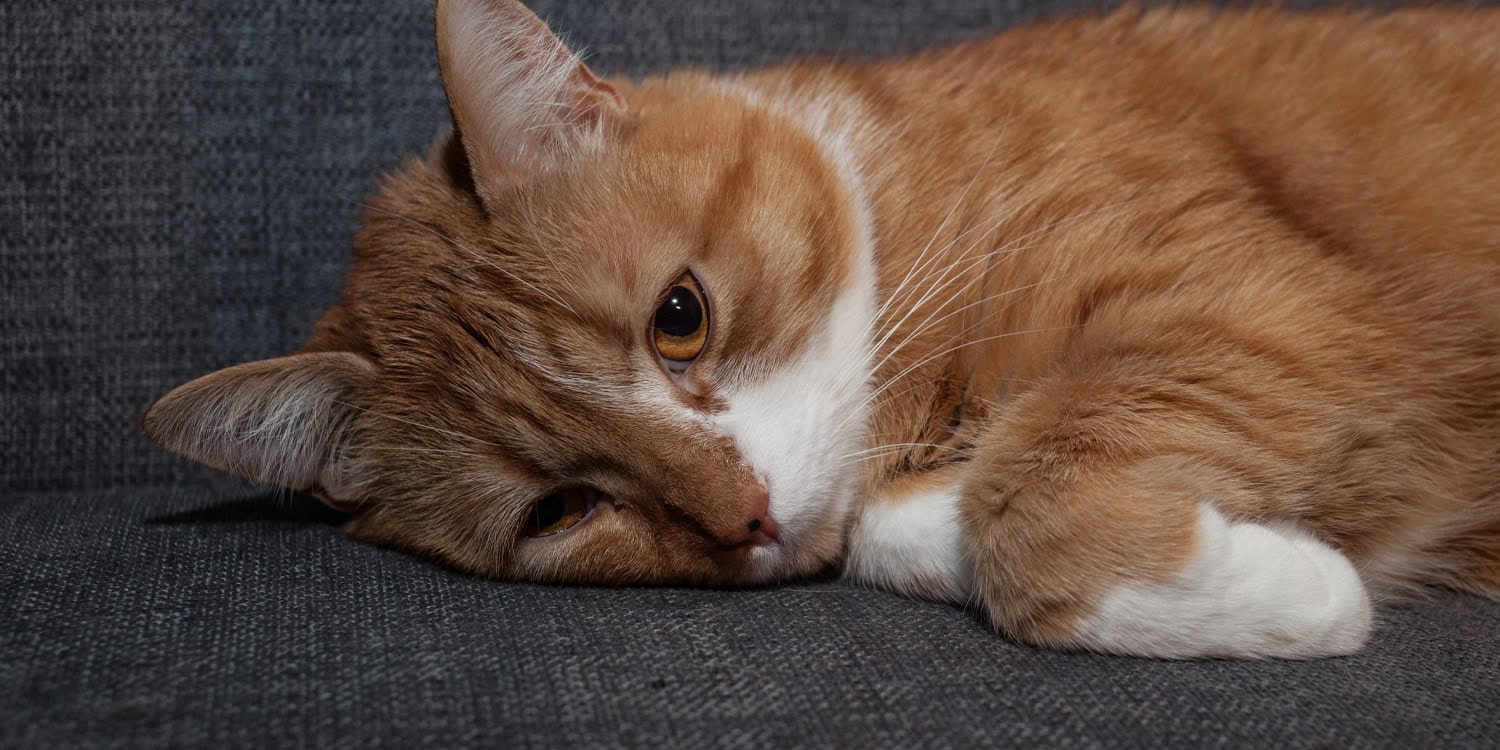When a beloved pet dies, many of us feel the pain of loss deeply, often likening it to the loss of a family member. But what about the surviving pets? Do they grieve the loss of their companions, too? A new study published in Applied Animal Behaviour Science suggests that cats might indeed mourn when another pet in the household passes away.
The idea that animals might experience grief has been around since Charles Darwin’s time. While much of the focus has been on animals like primates, elephants, and dogs, less attention has been given to animals that are generally seen as less social, such as cats. The researchers wanted to explore whether domestic cats, despite their solitary ancestry, might also show signs of grief when they lose a fellow pet.
“I have had the joy of caring for many cats over the past 20 years or so and unfortunately, many of these cats have passed away over the years. My husband and I always hoped that the surviving companions would react in some way that would show us that they cared and missed their companions (I suppose because ultimately, we want to believe that they would be sad if something happened to us as well), but the reactions are extremely subtle,” said study author Jennifer Vonk, a professor of psychology at Oakland University and co-editor of Personality in Nonhuman Animals.
“At the same time, other cat caregivers had told me their cats had responded quite profoundly to the loss of companions – showing signs consistent with depression. So I thought it was worthwhile to collect some objective information from a large sample of cat companion caregivers. Also, from a scientific point of view, it is important to learn whether domestic species that did not evolve from a group-living ancestor form bonds with their companions in this domestic setting where they are housed with other animals and humans. Lastly, I am just fascinated to know what other species understand about death, because it is a very abstract concept.”
To investigate this, the research team surveyed 412 cat caregivers who had recently lost a pet — either another cat or a dog — while still having one or more surviving cats in the household. These participants were primarily women, with an average age of around 32 years old. The majority of respondents reported on a single surviving cat, though a few reported on more than one.
Participants were asked to provide detailed information about their surviving cat and the pet that had passed away. This included questions about the relationship between the two animals, how long they had lived together, and how much time they spent engaged in activities such as sleeping, playing, or grooming each other. Respondents also provided information about their own attachment to the surviving cat and the deceased pet, as well as their personal feelings of grief.
The survey included a series of questions designed to measure changes in the surviving cat’s behavior both immediately following the death of the other pet and in the weeks or months afterward. Participants rated how much their cat’s behavior had changed in areas such as eating, playing, vocalizing, seeking attention, and hiding. The survey also asked about other possible changes in the cat’s behavior that might not have been captured by the predefined categories.
The results of the survey revealed that many cats did show changes in behavior that could be interpreted as signs of grief after the death of a companion animal. The most commonly reported behaviors included decreased eating, decreased playing, and increased attention-seeking from humans.
The study found that these changes were more pronounced in cats that had spent more time with the deceased pet and had a closer relationship with them. For instance, cats that had regularly engaged in activities like playing or sleeping together with the deceased pet were more likely to show these grief-like behaviors.
“I was somewhat surprised that the animals’ relationship predicted their behavioral changes (as reported by the owners) because it suggested a more widespread possibility of something akin to grief than I had experienced in my own cats,” Vonk told PsyPost. “For example, we had lost a pair of sisters and a pair of brothers and expected that the surviving siblings would show the greatest reactions when their siblings died, but we didn’t see a response in either surviving sibling. Perhaps it is because we still had various other cats in the household, but the number of surviving pets did not have a significant impact in this study.”
Interestingly, the study found that these behavioral changes were not limited to cats that had lost another cat. Cats that had lost a dog companion also exhibited similar changes in behavior. This suggests that the bond between the pets, regardless of species, was significant enough to affect the surviving cat’s behavior.
Another key finding was the influence of the cat owner’s attachment to their pets on the perceived behavior of the surviving cat. Owners who reported stronger attachments to the surviving cat or who felt more grief over the loss of the deceased pet were more likely to notice and report changes in their cat’s behavior.
For example, these owners were more likely to report that their surviving cat sought more attention or hid more often following the death. This raises the possibility that some of the reported changes in behavior might reflect the owners’ own emotional state rather than solely the cat’s experience of loss.
“The changes in surviving cats’ behaviors are similar to what others have reported for dogs that have lost companions,” Vonk said. The fact that “stronger reactions are predicted by the strength of the relationship, the amount of time the animals spent together, and other indicators [is] consistent with the idea that cats form bonds with other cats and dogs and may experience sadness when they lose these companions.”
While the findings are intriguing, the study has some limitations. Most notably, it relied on reports from cat owners rather than direct observations of the cats’ behavior. This introduces the possibility of bias, as owners might project their own feelings of grief onto their pets.
“Owners that were more attached to their cats reported more of a reaction, so it is possible that they were projecting their own feelings on to their cats,” Vonk explained. “This is especially possible because owners that experienced greater grief were even more likely to report changes in the surviving cats. Therefore, it is also possible that the owners’ behavior changed and this is what the surviving cats were reacting to.”
“For example, a very sad owner may have directed more attention to a surviving animal because of their own grief. But it could also be that more attached owners are better at picking up on their cats’ behaviors. These are all interesting possibilities in their own right.”
Looking ahead, the researchers suggest that more objective measures of animal behavior are needed to further explore the possibility of grief in cats and other species. Future studies could involve direct observations of animal behavior before and after the loss of a companion, as well as measures of the caregivers’ own behaviors and emotions. Additionally, researchers could investigate whether the social structure of an animal’s species — such as whether they evolved from social ancestors or were raised with siblings — affects their capacity for grief.
“I would like to develop a better understanding of whether other animals understand death and respond to it with something akin to grief,” Vonk said. “We are studying the response of a small group of horses to anticipated death in their herd and plan to collect more data with caregivers of other species. We are interested in whether it matters whether animals evolved from social ancestors or were raised with siblings, etc.”
“I think it is important not to make assumptions about animal minds. We often assume that only group-living animals would exhibit certain social cognitive abilities but I am interested in whether less social species like cats and bears might have some of these abilities too when placed in group situations under human care.”
The study, “Is companion animal loss cat-astrophic? Responses of domestic cats to the loss of another companion animal,” was authored by Brittany Greene and Jennifer Vonk.




